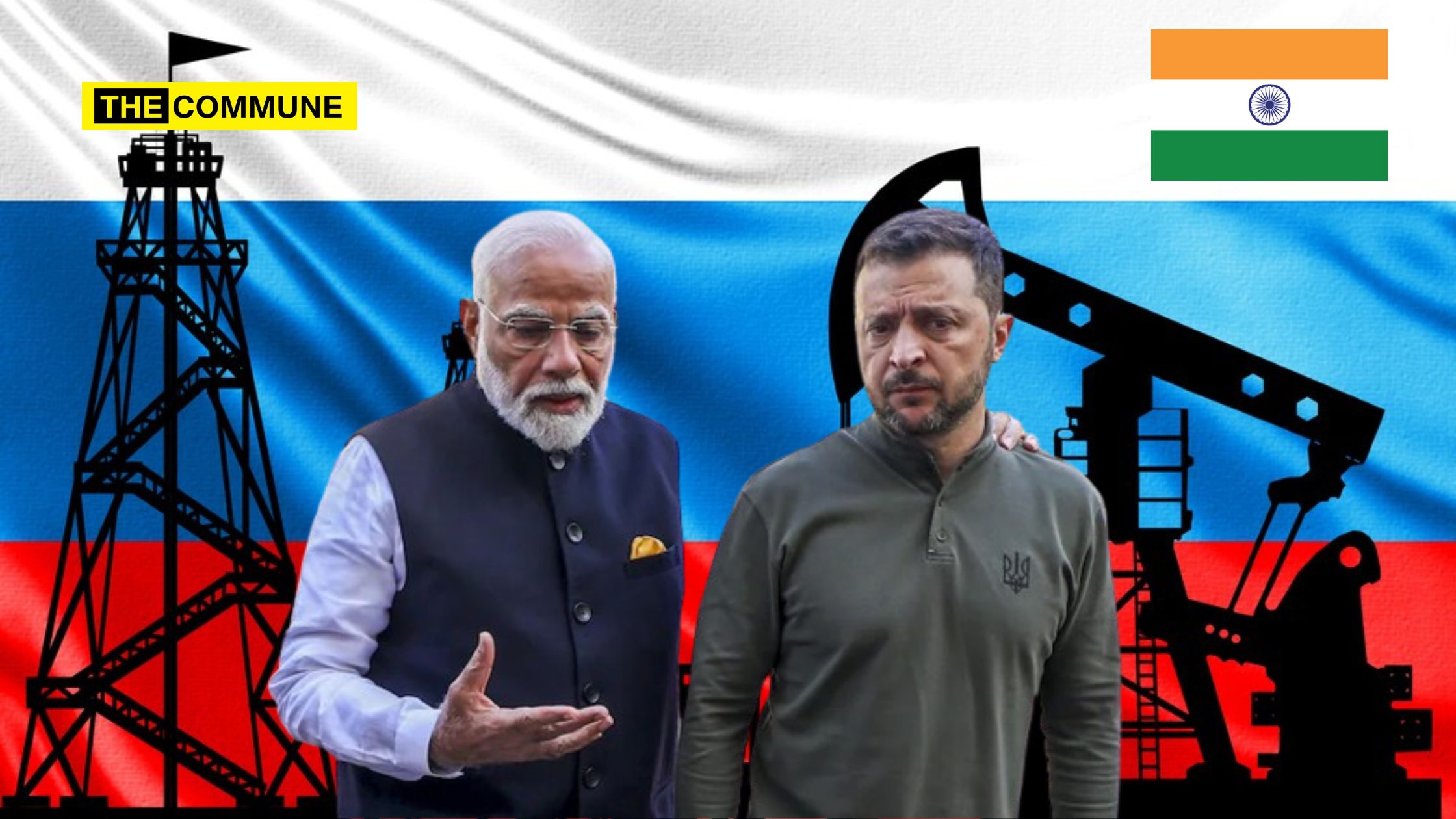When Indian Prime Minister Narendra Modi began his train journey from Warsaw to Kyiv, he became one of the few international leaders to have visited both Moscow and Kyiv. Modi has always advocated diplomacy and dialogue as a means of resolving the conflict between Russia and Ukraine. Speaking directly to President Putin during their meeting in Uzbekistan in September 2022, Modi stressed that the current era is not an era of war.
On August 23, 2024, Ukrainian President Volodymyr Zelensky called India a “significant country” with significant influence on the Russian economy and stressed that if India changed its stance towards Russia, particularly by stopping buying Russian oil at discounted prices and becoming more aligned with the EU, the war could be ended as this would prompt Russian President Vladimir Putin to cease hostilities. However, Zelensky’s call for India to abandon its neutral position and support EU sanctions against Russia sheds light on an existing problem.
Interestingly, despite his meeting with Prime Minister Modi, Zelensky continues to push India to take a tougher stance against Russia. Meanwhile, several European countries opposed to Russia have been found to be circumventing EU sanctions to continue importing Russian oil. Yet Zelensky remains silent. For example,
- Bulgaria: Although the country is temporarily exempt from the embargo, it continues to receive limited quantities of Russian crude oil.
- Germany: Some German companies have procured Russian oil through third-party traders.
- Netherlands: There have been allegations that the Netherlands allows the import of Russian oil through intermediaries.
- Poland: Despite its harsh criticism of Russia, Poland has reportedly allowed Russian oil into the country via third-party traders.
- Czech Republic: The Czech Republic is also reportedly importing Russian oil through intermediaries.
- Greece: Some Greek companies are said to be buying Russian oil from third-party sources.
In addition, there are reports and allegations that certain American companies also buy Russian oil from third-party traders who blend or process it to conceal its origin. This circumvention of sanctions by various countries raises questions about the effectiveness of the current measures taken by these countries to “not finance the war with Russian oil.”
India is clear on one point: as one of the world’s largest consumers of crude oil, its purchasing decisions are driven by market considerations rather than political strategies. India has an oil strategy that focuses on securing supplies based on market dynamics rather than geopolitical motives.
Speaking at a press conference in Kyiv shortly after Prime Minister Narendra Modi met with Ukrainian President Volodymyr Zelensky, Jaishankar stressed that India’s oil purchasing decisions would be determined by market conditions rather than political strategies.
Foreign Minister Jaishankar said: “India is a big oil consumer… we are a big oil importer because we don’t have oil. There is no political strategy to buy oil… there is an oil strategy to buy oil… there is a market strategy.” He stressed that the current tension on the market “So the numbers of where we import oil from will fluctuate… it depends on the market. But I think it definitely depends on or is determined by a tight market… a market where major oil suppliers like Iran and Venezuela, who used to supply India, are now prevented from operating freely.”
Jaishankar also reiterated India’s stance on purchasing Russian oil, stressing that this approach is crucial given the current market constraints.”We have discussed the market conditions with Ukraine. The sanctions against various producers have made the market particularly tense,“, he noted, adding that stable and reasonable oil prices would benefit the global economy.
In February, Jaishankar had defended India’s stance, arguing that Middle Eastern suppliers had given preference to Europe because of higher prices, leaving India without energy or forcing it to pay even more.”Our approach has helped stabilize the global energy market, as high prices would have been unsustainable for Indian consumers.”, he said in an interview with the German daily newspaper “Handelsblatt”.
Before the Ukraine conflict, India hardly bought Russian crude oil due to high transportation costs. However, by 2023, Russian crude oil imports into India increased to about 1.66 million barrels per day, up from less than 700,000 barrels in 2022. India, now the world’s third-largest oil importer and consumer, has become a major buyer of Russian crude by sea following Western sanctions. Payments for this oil were made in rupees, dirhams and Chinese yuan.
In May, Reliance Industries, operator of the world’s largest refining complex, signed a one-year contract with Russian oil company Rosneft to purchase at least three million barrels of oil per month, with payments made in rubles. This agreement allows Russia to bypass additional sanctions for transactions through Western financial institutions. Despite Western efforts, including by U.S. authorities, urging India to adhere to a price cap on Russian oil, India has continued its strategy of buying oil from Russia to effectively meet its energy needs.
Instead of lecturing India to reduce its Russian oil purchases, Zelensky should ask his friends in the West to do their part.
(With contributions from Rahul Shivshankar)
Subscribe to our Channels on telegram, WhatsAppAnd Instagram and have the best stories of the day delivered to you personally.

